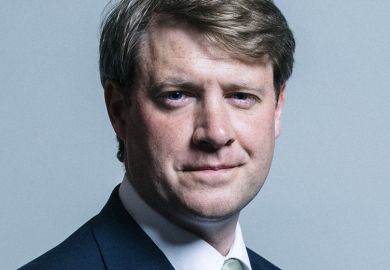Six English universities have signed up to a new pledge not to use non-disclosure agreements in dealing with complaints of sexual misconduct, bullying and other forms of harassment, as the higher education minister urged sector-wide support.
The pledge is backed Can’t Buy My Silence, a global campaign set up by former Harvey Weinstein aide Zelda Perkins and Canadian law professor Julie Macfarlane, which aims to end the harmful use of NDAs.
Six universities signed up to the pledge as it launched: the universities of Cambridge and Exeter, Bucks New and Keele universities, UCL and Goldsmiths, University of London.
The pledge says the universities signing “commit to not using non-disclosure agreements to silence people who come forward to raise complaints of sexual harassment, abuse or misconduct, or other forms of harassment and bullying”.
In 2019, Times Higher Education reported that UK universities had issued nearly 11,000 non-disclosure agreements in the space of five years.
Michelle Donelan, the higher education minister, said: “The use of non-disclosure agreements to buy victims’ silence is a far cry from their proper purpose, for example to protect trade secrets. I am determined to see this shabby practice stamped out on our campuses, which is why last year I wrote to vice-chancellors making my position clear.
“Several university leaders have signed a new moral contract to end the use of non-disclosure agreements against students and staff, and I call on other vice-chancellors to do the right thing and follow their lead.”
Ms Perkins and Professor Macfarlane said: “We have seen up close the damage caused by NDAs used by some institutions of further and higher education; damage to individual complainants who feel betrayed by their university, and damage to trust among institutions when a wrongdoer is ‘passed on’ protected by an NDA.
“We are delighted that [Ms] Donelan is asking universities to condemn this practice and pledge not to use NDAs in the future. This will dramatically change the accountability and transparency of universities and improve the lives of students, staff and faculty by helping to break the cycle of abusive behaviour perpetuated by these agreements.”
Alistair Jarvis, the chief executive of Universities UK, said: “Universities should not use NDAs or confidentiality clauses in settlement agreements in harassment cases, or allow any agreements which prevent open conversations about harassment. Such clauses can be barriers to the reporting of concerns and are both unethical and unacceptable.”
Last year, UUK said it would issue guidance warning universities against using non-disclosure agreements in sexual misconduct cases.
Register to continue
Why register?
- Registration is free and only takes a moment
- Once registered, you can read 3 articles a month
- Sign up for our newsletter
Subscribe
Or subscribe for unlimited access to:
- Unlimited access to news, views, insights & reviews
- Digital editions
- Digital access to THE’s university and college rankings analysis
Already registered or a current subscriber?








